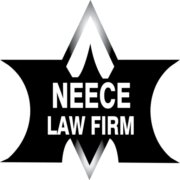Best Father's Rights Lawyers in North Carolina
Share your needs with us, get contacted by law firms.
Free. Takes 2 min.
Free Guide to Hiring a Family Lawyer
Or refine your search by selecting a city:
List of the best lawyers in North Carolina, United States
About Father's Rights Law in North Carolina, United States
Father's Rights refers to the legal protections and entitlements fathers have regarding their children, especially in cases involving divorce, separation, custody disputes, child support, and visitation. In North Carolina, both parents are viewed equally under the law with regard to parenting rights and responsibilities. The state's courts are focused on the best interests of the child when making decisions about custody or support. This guide provides an overview for fathers seeking to understand their rights and responsibilities in North Carolina.
Why You May Need a Lawyer
There are several situations in which a father may need legal help in North Carolina. If you are facing a divorce or separation, it is important to ensure your rights regarding your children are protected. Other common circumstances include disputes over child custody, disagreements about child support, questions around visitation schedules, attempts to establish or contest paternity, or if you are seeking to modify an existing court order. Legal representation can help fathers navigate the complex legal system, negotiate agreements, and advocate for their interests in court.
Local Laws Overview
North Carolina law does not favor mothers over fathers. Instead, both are presumed to have equal rights to seek custody and visitation. The state recognizes two main types of custody: legal custody, which refers to decision-making authority, and physical custody, which refers to where the child lives. Either parent may be awarded sole or joint custody, based on what the court determines is in the child's best interests. Child support is calculated using state guidelines that consider both parents' incomes, the needs of the child, and other factors. Paternity can be established voluntarily or through court action, and is necessary for fathers to claim legal rights. Courts also allow for the modification of custody and support orders if there has been a significant change in circumstances.
Frequently Asked Questions
What rights do fathers have if they were never married to the child's mother?
Unmarried fathers have the right to seek custody, visitation, and involvement in their child's life, but they must establish legal paternity first. This can be done voluntarily or through a court-ordered paternity test.
How is custody decided in North Carolina?
Courts decide custody based on the best interests of the child. Factors include the child's safety, needs, relationships with each parent, each parent's ability to care for the child, and stability of the home environment.
Is joint custody common in North Carolina?
Joint custody is common, but not guaranteed. The court considers the specific circumstances of each family to determine what arrangement best serves the child's needs.
Can a father get full custody of his child in North Carolina?
Yes, fathers can be awarded full or primary custody if it is in the best interests of the child. The court does not automatically favor mothers.
What happens if the mother denies visitation?
If a parent unreasonably denies court-ordered visitation, the other parent can ask the court to enforce the order or modify custody arrangements.
How is child support calculated?
Child support is calculated using the North Carolina Child Support Guidelines, which consider both parents' incomes, the number of children, childcare costs, and health insurance expenses.
Can custody or visitation orders be changed?
Yes, either parent can request a modification of custody or visitation orders if there has been a significant change in circumstances that affects the child's well-being.
How can a father establish paternity in North Carolina?
Paternity can be established with the mother's consent by signing an Affidavit of Parentage at the hospital, or through a court-ordered DNA test if paternity is disputed.
What should a father do if he believes the child is not his?
A father can request genetic testing to determine biological relationship, especially before a court order for child support is finalized.
Are grandparents' rights different from fathers' rights?
Yes, grandparents have limited rights to seek visitation under certain circumstances, but fathers typically have broader rights to custody and visitation once paternity is established.
Additional Resources
There are several organizations and government agencies in North Carolina that provide information, support, and legal assistance for fathers. The North Carolina Department of Health and Human Services offers resources for paternity establishment and child support. Legal Aid of North Carolina may provide assistance to those who qualify. Many county-based Family Courts or Clerk of Court offices can supply forms and procedural information. Support organizations such as Fathers United and the North Carolina Fathers Rights Movement can also provide guidance and peer support.
Next Steps
If you are seeking legal assistance regarding Father's Rights in North Carolina, begin by gathering all relevant documents, such as birth certificates, court orders, correspondence with the other parent, and financial information. Consider consulting with a family law attorney who has experience with Father's Rights cases. An attorney can evaluate your situation, explain your options, and advocate for your interests in negotiations or court proceedings. If cost is a concern, seek out local legal aid services or pro bono assistance. Regardless of your situation, understanding your rights and responsibilities is the first step in protecting your role in your child's life.
Lawzana helps you find the best lawyers and law firms in North Carolina through a curated and pre-screened list of qualified legal professionals. Our platform offers rankings and detailed profiles of attorneys and law firms, allowing you to compare based on practice areas, including Father's Rights, experience, and client feedback.
Each profile includes a description of the firm's areas of practice, client reviews, team members and partners, year of establishment, spoken languages, office locations, contact information, social media presence, and any published articles or resources. Most firms on our platform speak English and are experienced in both local and international legal matters.
Get a quote from top-rated law firms in North Carolina, United States — quickly, securely, and without unnecessary hassle.
Disclaimer:
The information provided on this page is for general informational purposes only and does not constitute legal advice. While we strive to ensure the accuracy and relevance of the content, legal information may change over time, and interpretations of the law can vary. You should always consult with a qualified legal professional for advice specific to your situation.
We disclaim all liability for actions taken or not taken based on the content of this page. If you believe any information is incorrect or outdated, please contact us, and we will review and update it where appropriate.
Browse father's rights law firms by city in North Carolina
Refine your search by selecting a city.















